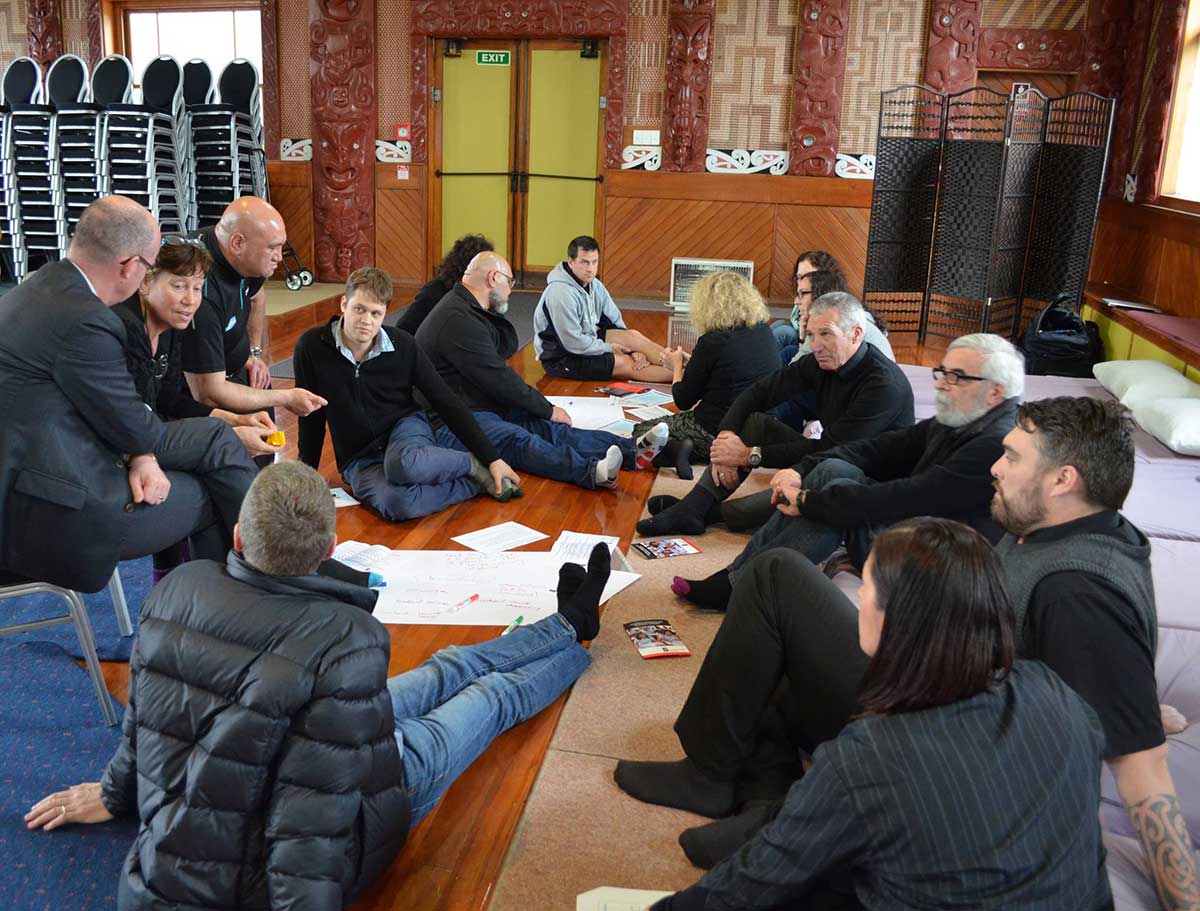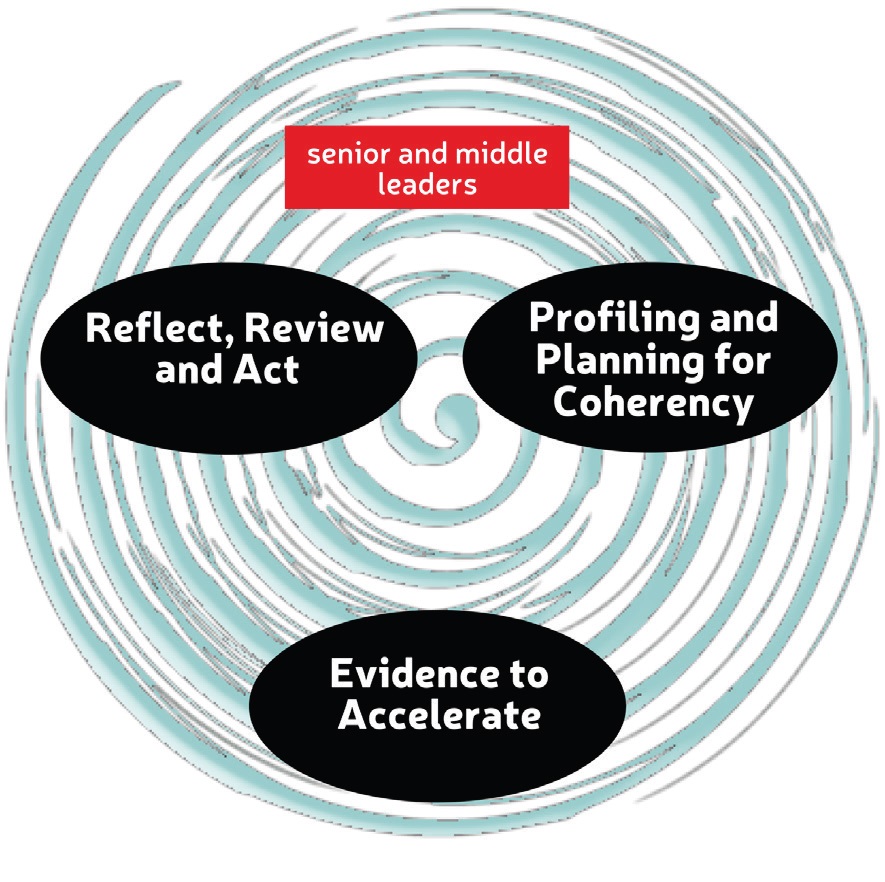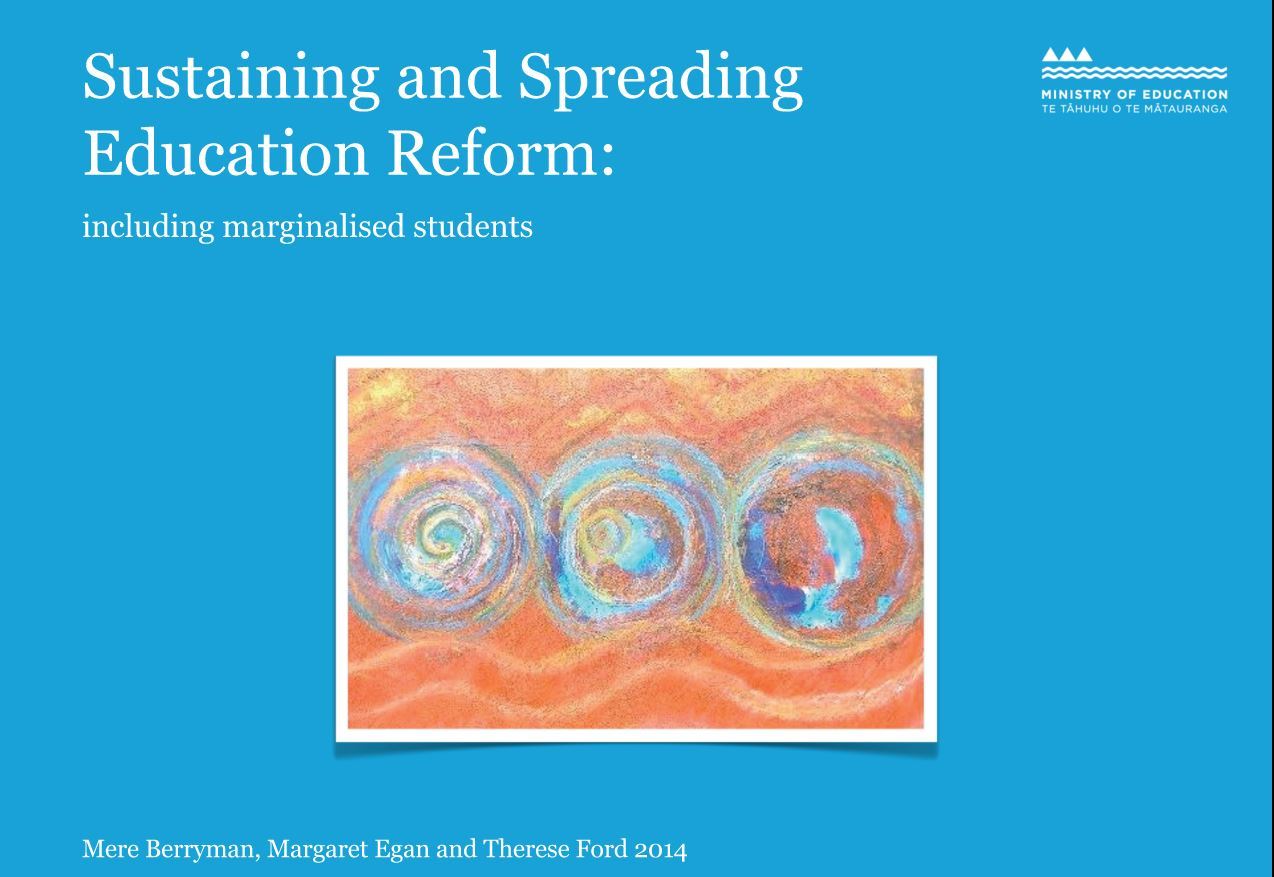Leadership


Ehara taku toa i te toa takitahi, engari i te toa takitini
My strength comes not from myself alone,
but from those who are on the journey with me.
 School leaders have a critical role in disrupting and changing the status quo of Māori under achievement. Transformative leaders understand that:
School leaders have a critical role in disrupting and changing the status quo of Māori under achievement. Transformative leaders understand that:
Resources comprising videos and sets of focusing questions have been developed with Kia Eke Panuku schools to deepen our understanding of effective contexts for learning. Click on the link to explore the video collections which feature contributions from Rotorua Boys' High School, James Hargest College and Kerikeri High School.
How leadership is undertaken and evolves in schools can accelerate or hinder the social change required to ensure Māori students can achieve education success as Māori.
 In Kia Eke Panuku, school leaders will understand the implications for social change and accept their role in driving the moral imperative for equity within their school. This occurs by:
In Kia Eke Panuku, school leaders will understand the implications for social change and accept their role in driving the moral imperative for equity within their school. This occurs by:
This requires leaders to investigate and develop their school’s strategic systems, processes and procedures to reflect and inform the ongoing reform.
Conscientisation begins by understanding where we may be inappropriately using power and privilege over others. Leaders in Kia Eke Panuku accept they have a moral responsibility to resist social injustices and challenge inequities within their own sphere of influence.
Leaders who can ‘walk this talk and talk this walk’ are demonstrating transformative praxis.
Shields (2010), calls leaders such as these ‘transformative leaders’. These leaders take seriously the personal and public responsibility to use power, privilege and position to promote social justice and enlightenment for the benefit of society as a whole. This requires listening to the needs and aspirations of the wider community within which one serves.

It considers a number of leadership models that might re-imagine and lead such a reform.
view: eBook (PDF)
go to: online version